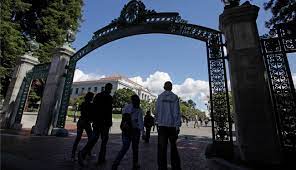In a paper published in 2015, scholars from Tsinghua and Stanford University said students with hukou in the poorest fifth of counties were seven times less likely than their urban counterparts to get a university place and 14 times less likely to attend an elite one. In those counties, the odds were even more stacked against girls and ethnic minorities. “It is really, really clear that it is now much, much harder for a poor, rural kid to get into a good university,” says Scott Rozelle of Stanford. He estimates that around 75% of urban children go to university compared with 15% of rural ones. Nearly 80% of children under 14 have rural hukou. But writing in 2017, Wu Xiaogang, now of NYU Shanghai, a Sino-American joint-venture university, said less than 17% of students in elite universities had rural household-registration before taking up their places. The pattern has not changed since then, says Mr Wu. “If anything, it may be even worse now.”
清華大學和斯坦福大學的學者在2015年聯合發表的一篇論文中表示,相較于擁有城市戶口的學生,戶口在中國五分之一最貧窮縣的學生考入大學的概率要低7倍,考入頂尖大學的概率要低14倍。而在這些貧困縣中,女孩和少數民族的勝算更低。斯坦福大學的斯科特·羅澤爾表示:“顯而易見,一個貧窮的農村孩子愈加難以考上好大學。”羅澤爾估計,能考上大學的城市孩子約有75%,而農村孩子只有15%。近80%的14歲以下兒童有農村戶口。但目前就職于中美合資大學——紐約大學上海分校的吳曉剛在2017年寫道,頂級大學中有不到17%的的學生在入學之前是農村戶口。吳曉剛表示,這樣的模式從那時起就沒有變過,“如果非要說出點不同的話,那就是當前的情況可能更糟。”

That is because inequalities in society are becoming more pronounced. The children of wealthy families have access to the best schools as well as to after-school tutoring and extra-curricular activities. Their parents can afford homes in good catchment areas. China offers nine years of free, compulsory education, but fees are levied at state-run senior secondary schools. In poor areas, charges can amount to more than 80% of net income per person, one of the highest such burdens in the world. Some students prefer to start work: a typical unskilled factory hand can earn in a month what a poor farmer earns in a year.
這是因為社會上的不平等越來越明顯。出身富貴的孩子可以上最好的學校,也可以參加課外輔導和課外活動。他們的父母能負擔得起好的學區房。中國雖然提供免費的九年義務教育,但公立高中是收費的。學費可能達到貧困地區人均純收入的80%以上,這樣高的負擔堪列世界之最。部分學生更傾向于開始工作:一個無特殊技能的普通工廠工人的月薪,相當于一個貧窮農民一年掙的錢。
Since its relaunch in 1977, universities mostly have relied on test scores for admission. In 2003 China began to allow some universities to recruit students with special talents such as in sports and arts. Again, the wealthy have been the main beneficiaries: only they can afford to pay for the training needed.
自1977年高考恢復以來,大學大多依靠考試成績進行錄取。2003年,中國開始允許部分高校招收體育和藝術等方面的特長生。富家子弟再次成為新政策的主要受益者:只有他們才有能力支付所需的培訓費用。
譯文由可可原創,僅供學習交流使用,未經許可請勿轉載。











